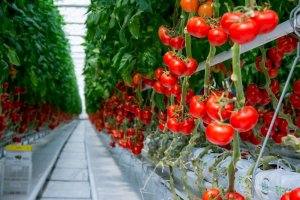Two varieties of winter soft wheat "Turkmenistan" and "Bitarap-25" were created this year by scientists-breeders of the Agricultural research and production center of the Turkmen agricultural Institute (Dashoguz), the State publishing service of Turkmenistan reports.
Wheat varieties were obtained by reverse crossing with subsequent individual selection. Their growing season averages 200-210 days, protein content-13-15 percent, gluten-32-34 %, and vitreous-65-70 %. The height of plants of the "Turkmenistan" variety reaches 87-91 centimeters, the ear-12-14 cm, the weight of 1000 grains is 41-45 grams. The yield in the competitive variety testing on average for three test years was 83 centners per hectare, which exceeds the indicators of "Sahrai". Nature of grain - 810-830 g/l. The height of the wheat variety "Bitarap-25" reaches 85-90 centimeters, the ear-12-14 cm, the weight of 1000 grains is 42-45 gr. The yield of the variety in the competitive variety testing averaged-80.0 prices/ha, exceeding the quality of the standard variety "Sahrai" by 14.5 prices/ha. Nature of grain - 800-820 g/l.
Also completed work on the new barley variety "Hasylly", which was created by individual selection. Its vegetation period lasts for 185-200 days, protein content – up to 9-11 per cent, starch – 50-55 %. The new variety has a plant height of 105-110 cm, ears-8-10 cm, weight of 1000 grains-47-50 grams. The yield in the competitive variety testing was 50 cents / ha, exceeding the standards of another variety of the domestic collection of this crop - "Sona" by 8.9 cents/ha.
Research and production studies continued for three years, covering the period from 2018 to 2020. All created varieties are resistant to brown and yellow rust, powdery mildew, lodging, drought and frost. Cereals are suitable for cultivation in all soil and climate regions of Turkmenistan.
Currently, the seed material has been transferred to the State service of seed production and variety testing of the Ministry of agriculture and environmental protection of Turkmenistan for state testing, which precedes the introduction of production.













